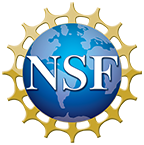
Advancing Strategies in Cybersecurity Education and Career DevelopmenT (ASCEND)
Description
The overall goal of ASCEND is to provide opportunities for underrepresented minorities to enter the cybersecurity workforce by preparing them to meet the evolving needs of the cybersecurity field and strengthening the pipeline from high school – to college – to employer.
Outcomes
As part of this National Science Foundation (NSF) grant, the School of Engineering and Technology (EnTec) is working on the following areas:
- Strengthening the pipeline from high school to college-level cybersecurity degree programs by:
- Offering high school teacher’s professional development for the creation and implementation of a Cybersecurity program at the high school level.
- Offering summer camps that prepare high school students with technical skills as secure computer users and the soft skills needed to be successful in the field.
- Offering dual enrollment courses in cybersecurity to high school students in collaboration with Career Link.
- Increasing college student's employability in cybersecurity by:
- Aligning student learning with employer-informed technical and soft skill competencies along with industry certifications embedded into structured, applied learning experiences.
- Supporting students to complete the Associate in Science in Cybersecurity through coaching and mentorship.
- Increasing industry engagement in curriculum review and job placement through MDC’s Cybersecurity Advisory Board.
- Developing employer-student interface activities to increase students’ placement in cybersecurity internships or entry level positions locally.
Leadership Team
- Dr. Diego Tibaquirá (P.I.), Computer Science Professor
- Manny Perez (Co-P.I.), Dean of Engineering, Technology and Design
Contact Information
Mackenzie Lair, Grant Coordinator
Office: Wolfson Campus, Room 3704
Email: mlair1@mdc.edu
Sponsor
Full support for this work was provided by the National Science Foundation Advanced Technological Education (ATE) program under Award No. 2000442. Any opinions, findings, and conclusions or recommendations expressed in this material are those of the author(s) and do not necessarily reflect the views of the National Science Foundation.


